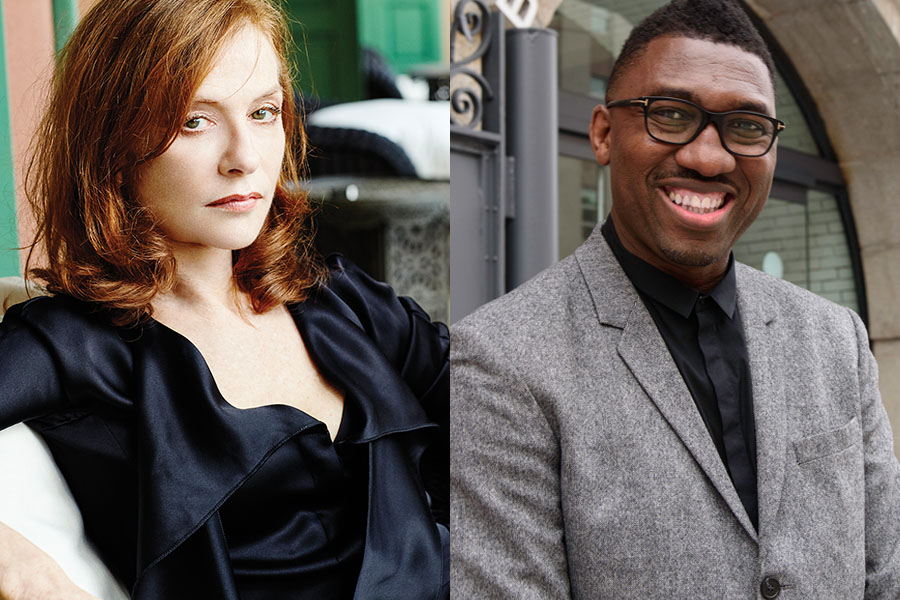“Theatre has such a thriving life that it defies space and time; its most contemporary pieces are nourished by the achievements of past centuries, and even the most classical repertories become modern and vital each time they are played anew. Theatre is always reborn from its ashes, shedding only its previous conventions in its new-fangled forms: That is how it stays alive.”
—Isabelle Huppert, actress
“I began to get depressed and then I remembered that I am a theatre artist. And here’s the beautiful thing about theatre: It is best experienced with our eyes fully open; best made with our fears and questions and wounds on full display; and can only be constructed with the mutuality of absolute interdependence.”
—Kwame Kwei-Armah, playwright, director, and artistic director of Baltimore Center Stage
NEW YORK CITY: The Global Theater Initiative (GTI), a partnership between Theatre Communications Group (TCG) and the Laboratory for Performance and Politics (the Lab) at Georgetown University, today invites all theatres, individual artists, institutions, and audiences to celebrate the 55th annual World Theatre Day, March 27, 2017. In GTI’s role as the home of the U.S. Center of the International Theatre Institute (ITI-U.S.), TCG and the Lab encourage all theatre people to celebrate the power of theatre to strengthen cultural exchange and mutual understanding across borders.
Each year, a renowned theatre artist of world stature is invited by the International Theatre Institute Worldwide in Shanghai to craft an international message to mark the global occasion. This year the message has been written by French theatre and movie actress, Isabelle Huppert. The message has been translated into more than 20 languages to reach tens of thousands in the international theatre community.
Additionally, GTI is proud to announce the U.S. World Theatre Day message from Kwame Kwei-Armah, playwright, director, and artistic director of Baltimore Center Stage. Past U.S. World Theatre Day messages have been given by Ping Chong, Jeffrey Wright, Lynn Nottage, and Diane Rodriguez.
You can read both speeches in their entirety here.
“Both Huppert and Kwei-Armah have forged careers that cross both artistic and national borders,” said Teresa Eyring, executive director of TCG, in a statement. “Their messages are particularly resonant during this troubling time of rising xenophobia. They inspire us to participate in World Theatre Day and to imagine a more compassionate, interconnected world.”
Kwei-Armah will read his World Theatre Day message at Dreams Deferred, a one-night-only GTI event hosted at Georgetown University on World Theatre Day. The event will explore the resonance of A Raisin in the Sun in three different cultural contexts—South Africa, Sweden, and the United States—as well as the larger themes of racial equality and justice, the legacies of author Lorraine Hansberry, the Civil Rights Movement, and apartheid. The evening will include scenes from A Raisin in the Sun and other pieces inspired by Hansberry’s legacy, as well as a discussion with Swedish director Josette Bushell-Mingo and international artists and experts moderated by Prof. Soyica Colbert. Read more about the event here.
“Isabelle Huppert is probably one of today’s strongest French actresses, says Tobias Biancone, director general of the International Theatre Institute (ITI), in a statement. “She relentlessly is working for film and theatre and amazes critics and audiences alike…The multifaceted characters she has played on stage and on the silver screen may be one of the reasons that stage directors like Bob Wilson, Peter Zadek, and Krzysztof Warlikowski are attracted to work with her.”
Learn more about World Theatre Day and GTI’s international programming here.
The first World Theatre Day international message was written by Jean Cocteau in 1962. Succeeding honorees include Arthur Miller (1963), Ellen Stewart (1975), Vaclav Havel (1994), Ariane Mnouchkine (2005), Sultan bin Mohammad Al Qasimi (2007), Augusto Boal (2009), Dame Judi Dench (2010), Jessica A. Kaahwa (2011), John Malkovich (2012), Dario Fo (2013), Brett Bailey (2014), and Krzysztof Warlikowski (2015).


